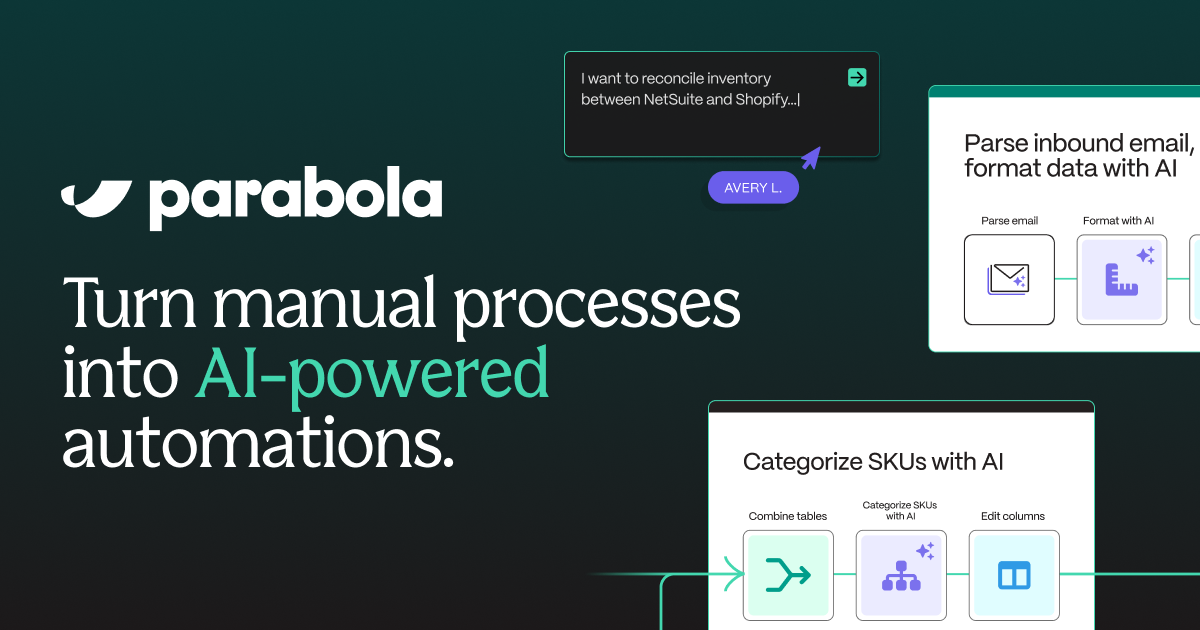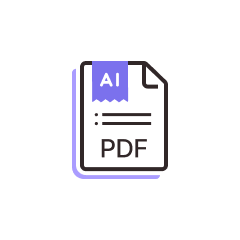Normalize PDF Data Using AI – Free Template
Automatically standardize your PDF data without writing a single line of code.

Automatically standardize your PDF data without writing a single line of code.









Parabola's PDF handling capabilities enable you to extract and transform data from PDF documents efficiently.
Parabola's PDF data extraction functionality enables you to convert PDF documents into structured, analyzable data. The platform can handle various PDF formats and layouts, making it versatile for different business needs.
Once you have imported your data into Parabola, you can use the Standardize with AI step to automatically clean and standardize it. This step leverages large language models to identify and correct inconsistencies, typos, and other data quality issues.
Many businesses receive invoices in PDF format from their suppliers. By using Parabola to extract and standardize the data from these invoices, you can streamline your accounts payable process, improve data accuracy, and gain better visibility into your spending.
If your business sells products that are described in PDF catalogs, you can use Parabola to automatically extract the product details, such as descriptions, prices, and SKUs. This can help you keep your product information up-to-date, analyze trends, and make more informed decisions about your product offerings.
Many organizations receive data in the form of PDF reports from various sources, such as government agencies or industry associations. By using Parabola to extract and consolidate this data, you can create a centralized repository of information that can be easily analyzed and shared across your organization.
In conclusion, Parabola's ability to work with PDF data and leverage AI-powered standardization can help you streamline your data processing workflows, improve data quality, and gain valuable insights from your PDF documents.








Request a demo and see how Parabola can automate
your most manual SOPs.